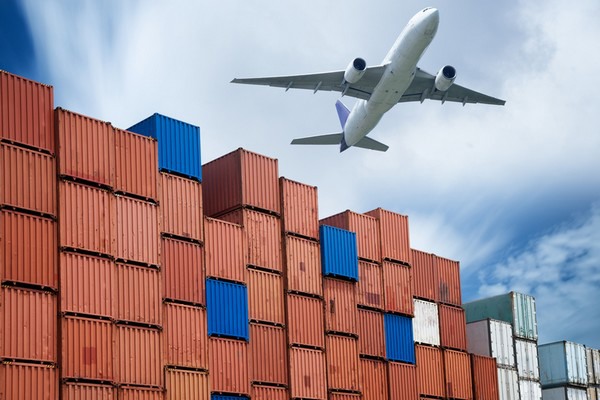"A local hero" is how Robert Verbaenen of Deny Cargo describes the Flemish logistics service provider. This family business, celebrating its 35th anniversary this year, takes pride in its small-scale, familial approach, with which it recently distinguished itself in the perishables sector. "We might not be the biggest, but as a neutral party, we can be of value to many customers," he begins.

Deny Cargo, founded in 1988, is a logistics service provider for all types of freight and aims to offer specialized logistics solutions to a broad spectrum of sectors. In recent years, it has increasingly focused on perishables. That is where Robert comes in. He has been connected to the logistics service provider for several years but has a long history in the sector. "I started at Air Ghana, where I managed pineapple exports for 17, 18 years."
"After detours at Adelantex and Kuehne+Nagel, I made contact with Deny Cargo's owner a few years ago. We clicked immediately and quickly established this collaboration. Eventually, they hired me to focus on perishables and further develop this segment within the company. That's been quite challenging recently. With COVID-19 and sharply increased rates, it's taken some heavy hits, but through the network we've built over the years, we managed to keep it going," says Robert.
The family business focuses on multimodal import and export modules via air, road, and sea. "We have a warehouse at Brussels airport, but also work with agents and partners at nearly all European airports. That's increased significantly since the pandemic, and a reliable, smooth process has become more and more important for customers. Then, you benefit greatly from solid international partners to whom you can give a mandate."
"They forward and handle a shipment for us, but we have control over the products throughout the entire process," Robert explains. The logistics sector has been tricky, especially during the pandemic. "On one hand, there were many delays; on the other, rates were very high. Those have stabilized but still make sudden jumps. It remains a volatile sector, where, for instance, fuel can significantly impact prices."
"In these times, we benefit from being a family business. There's a different mentality. It's about the people and the service you offer to your partners. We ensure trade reaches customers as quickly as possible, and through this, we keep growing steadily," says Verbaenen. The company is confident about the future, as this year they signed an agreement with Brussels Airport for a new state-of-the-art building with a 2500m² warehouse.
"That guarantees we'll remain at the airport for 15 more years. This deal is part of the 2040 renovation plan, which focuses on a new, environmentally friendly project. We should've moved to the new facility in 2023, but COVID-19 delayed that by two years. We now expect to move in January 2026. It shows we're looking forward."
Neutral party
And the company increasingly looks towards perishables. Deny Cargo sees a nice place in the market for them in that sector because they can position themselves as a neutral party. "We're not tied to a larger company, so we can work with and for everyone. We have several loyal clients, but sometimes we also subcontract for others," Robert states.
"That's also why we might be a lesser-known name. We work completely behind the scenes. For example, a large service provider's shipment arriving at a competing provider's agent can sometimes cause friction. Then it's useful to have an independent agent like us to arrange everything from A to Z. We try to establish partnerships with customers and other agencies."
"Perishables are a true specialization within the logistics chain. Their phytosanitary requirements and documentation are a field of its own. Being in Brussels, 'The heart of Europe', benefits us. We can guarantee products arrive problem-free within a 500km radius within 24 hours. Also, loads can get here in the late afternoon or evening," Robert continues.
"Because we're in Brussels, they can make it through customs, FAVV, and early to market and still reach the client the same day. That's also why we have a dedicated perishables department, where experienced employees are available 24 hours per day to handle these products. That's essential since the market can instantly change, requiring adjustments. That's where experienced, trained professionals come into play."

Misconception about air freight
A modal shift seems unlikely to Robert, despite several supermarkets' push to stop using air freight for their vegetables and fruits. "It seems to be something more and more people want, but when you analyze it, it doesn't seem feasible. I'm also slightly skeptical as it seems to be used a bit for greenwashing," he says.
"I find the constant push towards shifting to sea freight quite dangerous. Some products simply cannot be transported by boat. On the one hand, because ready-to-eat fruit's quality is simply better, which many still prefer. On the other, there's a misconception about air freight."
"A professor at the University of Antwerp (ed. Wouter Dewulf) has written articles on this. In short, the cargo space on some long-haul flights is almost empty anyway because hardly any cargo goes back on return trips," Verbaenen explains. "Typically, those are return flights to Africa and Latin America. That space is filled with low-value goods such as vegetables, fruits, and flowers that fly cheaply. When air freight cargo is banned, that left-over space isn't used. Then you can talk about ecological footprints as much as you want, but there will always be flights."
"Yet, these shifts in society also make it a great sector. You must constantly work with and adapt to the hand you're dealt. That keeps it fun and makes the fresh produce sector fascinating," Robert concludes.
For more information:
Robert Verbaenen
Deny Cargo
751 Business Zone Machelen Cargo
1830, Machelen, Belgium
Tel.: +32 (0) 27 52 21 11
robert@denycargo.be
www.denycargo.be
